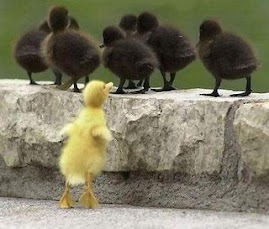I think about urban revitalization a great deal. It is what I do professionally. But I live it personally as well. I sometimes cannot separate the two. My new university (where I am employed) is seizing the initiative of civic engagement. Many colleges and universities are taking up this banner to be good neighbors, to build and expand their campuses responsibly, and to bring the energy and brainpower of the university to the community in which the campus is situated. Much of this has to do with enlightening students by getting them involved in the world off campus - to get them out of the ivory tower. The rest has to do with the University as a big physical institution that takes up a lot of land and has development interests that affect the city.
My interest at this point is two-fold. First is how to get students to think about the surrounding community in new ways (and in Camden, that is a herculean task), and second is to understand how the first task may affect the University's perception of the community and ultimately race relations. My school is a white institution in a black and hispanic city. The student population is diverse, but mostly white students from the surrounding suburbs. They have been immersed in a culture that has taught them to fear this city and to get in/get out as quickly as possible. Some faculty I have met have the same conception - drive in, teach, do your job, leave and get the hell out of dodge. A colleague mentioned that they had no idea there was a neighborhood next to the campus (where I live) because they get on and off the expressway and never venture beyond the campus. Someone on campus said to me the other day that if our school were located in the suburbs, we would have tripple the student population we now have. They said our location is a deterrent and we have to improve the city to make it work for us. Hmmmm.
I am building an army, a force of students, to rethink their relationship with Camden. There are over 5000 students at our campus. If there were 5000 people supporting this city, advocating for it, treating the city with respect while here, talking positively about the city to others, and getting involved - even if only to patronize a merchant off campus, imagine how that might affect the city's ability to thrive. I am not suggesting a missionary contingent. I am suggesting a listening party. A group that steps out of the way and in so doing, empowers the community.
What's needed is an army of people who will listen to what the city is really saying, listen to what the people are saying and how they want their city to be. Stop being an impediment by being so right about what you know this city to be.
I see Camden's decay as a result, at least in part, of the abuse the city takes from people that don't live here and have no stake. This includes the executives and workers that drive in and leave from their heavily guarded parking lots and buildings. This includes the students, parents, alumni, staff, administrators, and faculty that cruise into campus daily and leave as quickly as possible under the watchful gaze of a campus security force and a campus police force. These are similar groups of people that reinforce to each other that their perspective of this city as a dangerous place is spot on. Daily, I see and hear comments and actions from students, faculty, merchants, and public/civic leaders that reinforce that worldview. And then we all spend a lot of time trying to "improve" Camden. Doctors, heal thyselves!
Camden is a tough, crime-ridden city. It is in stark decay. It is poor. It is overwhelmingly minority. But treating the city with disrespect when you don't live here is not helpful. Yes, you are right. The city is a model of urban blight. But how does you being right improve the situation? It merely confirms the obvious and makes you feel justified in trashing the city. Imagine if you lived in a neighborhood where every day the newspaper said it is a rathole, people who drove in to work did not want to have anything to do with you and would not patronize your businesses. Imagine if your neighborhood were under strict supervision by authorities to make sure you and your neighbors did not get out of line, but rarely helped you. Imagine this went on for 40 years after the jobs left, after people left the rest of the city and after the money left. Welcome to inner city USA. Welcome to Camden.
Subscribe to:
Post Comments (Atom)









No comments:
Post a Comment